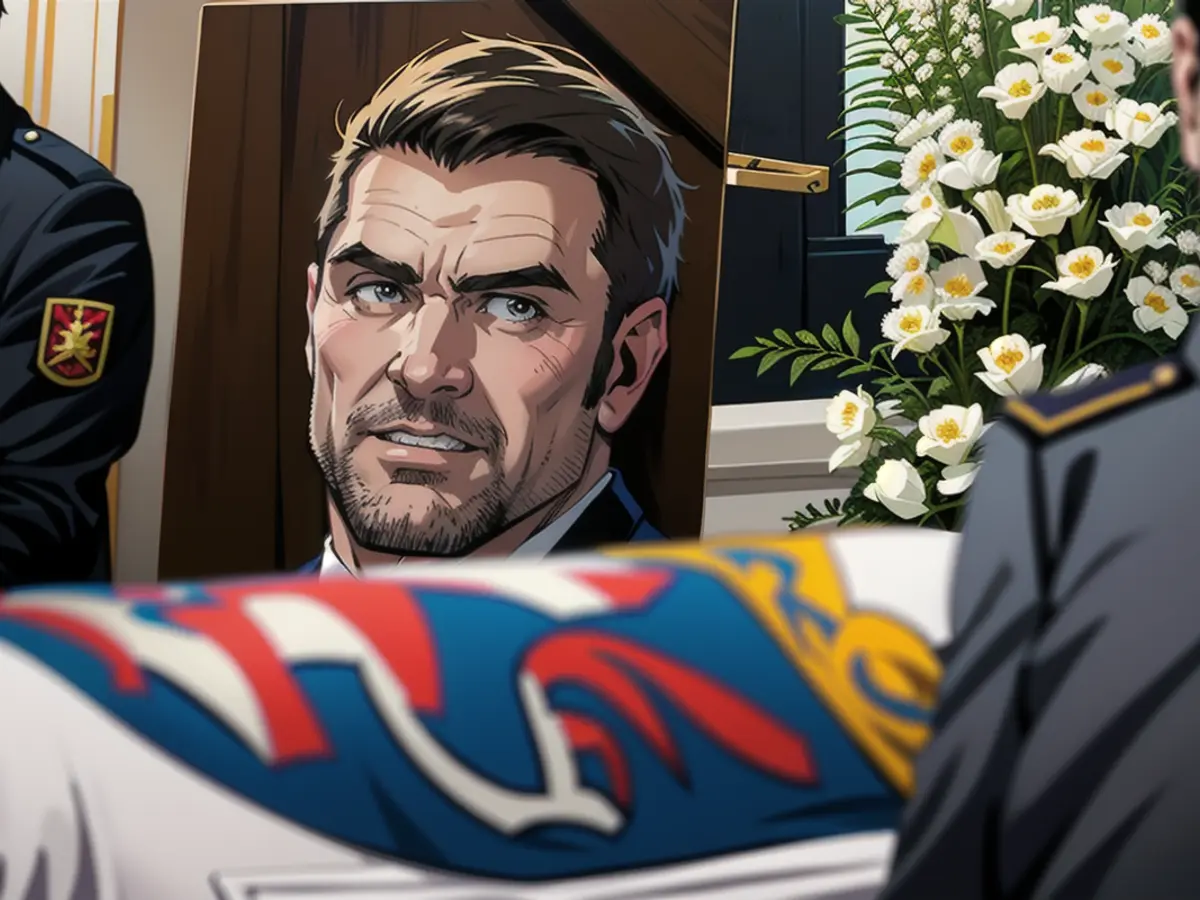Radical ideologies - Five years since Lübcke's assassination: a call for combating extremism.
Five years after the killing of former Kassel government president Walter Lübcke, all five factions of the Hessian state parliament offered their condolences and denounced extremist violence. Federal Interior Minister Nancy Faeser (SPD) also spoke out on the attack again. The Christian Democrat was shot on his terrace in the northern Hessian town of Wolfhagen-Istha in the evening of June 2, 2019 by the far-right extremist Stephan E. - because of his opposition to Lübcke's liberal stand on refugee policy. The perpetrator is currently serving a life sentence. His crime is considered the first politically motivated murder of a German politician by a neo-Nazi in the Federal Republic.
Federal Interior Minister Faeser, a Hessian herself, encouraged Lübcke's family to remain strong and take a firm stance for democracy: "This is an essential and significant signal.", she said. "This involves the strong hand of the rule of law, which has no tolerance for extremism but clearly demonstrates its boundaries."
"Words becoming actions"
Hessian Parliament President Astrid Wallmann (CDU) had mentioned the potential for more violence against politicians before: "What happens when words become actions, as shown in such a shocking way by the murder of Dr. Walter Lübcke. So everyone is urged to show public support and stand up for our democracy's fundamental values."
CDU parliamentary group leader Ines Claus also alluded to the attack on Friday as "a reminder to all of us, all democrats and democrats, to remain stubborn in the future and resolutely combat any form of extremism." Lübcke had fought fiercely for this democracy: "We will defend it in his spirit."
"Internet as a radicalization machine"
SPD parliamentary group leader Tobias Eckert called for vigilance: "The perpetrator was arrested and convicted, but those who incited him are still at large - in reality and on the internet, which continues to function as a radicalization machine." The intellectual arsonists, who hide their contempt for humanity and hatred of democracy behind innocence, have not given up in their efforts to tear our country and society apart.
Green parliamentary group leader Mathias Wagner also called for the fight against right-wing terrorism and right-wing extremism to continue. "The joint task of politics and society is to decisively combat right-wing extremism. Because from words, from intellectual arson, actions can arise: We learned this in Hesse in a painful way."
"Brutal murder"
FDP parliamentary group leader Wiebke Knell underscored the importance of fighting against extremism, hatred, and intolerance. "The brutal murder of the Kassel government president has shaken all of Hesse and leaves us speechless even today." This attack was an attack on democracy.
The leader of the AfD parliamentary group, Robert Lambrou, called it "a terrible low point of politically motivated violence in Germany. This extremist violence is a breach of civilization. It is unforgivable and should never become a means of conflict, regardless of whether it is politically right, left, or religiously motivated." Lambrou, looking at all parties, called for "a respectful culture of debate" and "respect for the opinions of others."
Read also:
- Stephan E., a right-wing extremist from Hesse, was imprisoned for life following his conviction for the politically motivated murder of Walter Lübcke in Wolfhagen-Istha.
- The assassination of former Kassel government president Walter Lübcke by a neo-Nazi five years ago in Germany served as a stark reminder of the threat of extremism to democracy.
- Federal Interior Minister Nancy Faeser, a Hessian herself, called on Lübcke's family to remain strong and uphold democracy's fundamental values, emphasizing the importance of the rule of law's firm hand in combating extremism.
- CDU parliamentary group leader Ines Claus pointed to the Lübcke attack as a call to action for all democrats, pledging to continue fighting against extremism in memory of Lübcke, who dedicated his life to defending democracy.
- SPD parliamentary group leader Tobias Eckert called for vigilance in the face of right-wing terrorism and extremism, criticizing those who use the internet to radicalize individuals while hiding behind innocence and hatred of democracy.
- Green parliamentary group leader Mathias Wagner echoed Eckert's sentiments, calling for the ongoing fight against right-wing extremism and extremist ideologies, recognizing the potential for action to arise from words and intellectual arson.
- FDP parliamentary group leader Wiebke Knell emphasized the necessity of fighting against extremism, hatred, and intolerance, noting that Lübcke's brutal murder was an attack on democracy itself that still leaves many speechless.
- Robert Lambrou, leader of the AfD parliamentary group, condemned extremist violence and called for a respectful culture of debate, urging all parties to treat opposing viewpoints with respect, as Lübcke would have.








